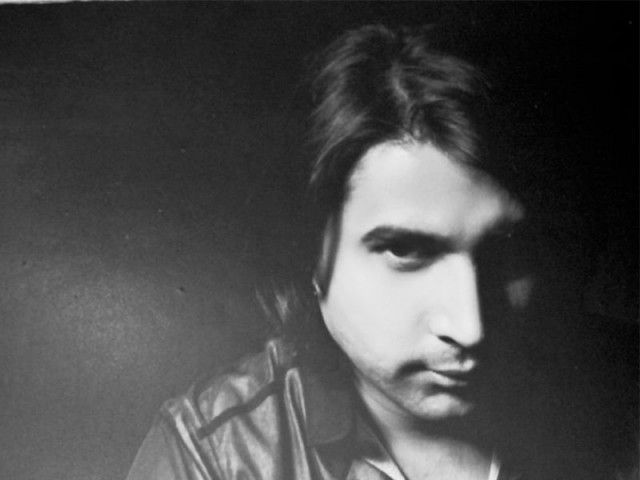Gharanas: An age-old tradition
Mekaal Hasan Band’s bassist Amir Azhar on the need for education and awareness to save the dying tradition.

“They’ll die hungry but won’t give up music,” says Amir Azhar, the bassist for the Mekaal Hasan Band, about the innate passion of gharana-trained classical singers. “These musicians have music in their blood, there is no way they will stop playing,” adds Azhar.
Azhar is not a typical rock musician. He represents a unique class of musicians who have been trained in the gharana system in Lahore — a system that links musicians by lineage and apprenticeship. The ease with which he can manoeuvre a string instrument testifies to the fact that Azhar has mastered the art through special training. Now, he has taken the task of passing his experience and skills to upcoming musicians. Inside his A and A Studio, which he opened last year, artists from all backgrounds are being groomed for the future.
Family background
Azhar comes from a family of musicians — his father Azhar Hussain is credited with being the first electrical bassist in Pakistan and he and his brother were known as the Tafu brothers, the veteran musical duo who participated in many musical ventures of the cinema industry in the 70s.
However, despite the initial success of most gharana-trained musicians, circumstances cha-nged when General Ziaul Haq’s policies made it difficult for the film and music industry to thrive. “The biggest change was that film industry started cutting corners; hence orchestra disappeared,” adds Azhar. “This meant they played everything with the keyboard which hurt the industry and as a result of this, many of the old musicians sat at home, while the children tried to carry on the legacy.”
Journeying into mainstream music
In the early 90s, Azhar, along with a group of his cousins, continued his passion through the Punjabi cinema industry. Having been trained since the age of eight, Azhar made his debut by playing music in the film Chooriyan but it was through his job as a session player for many pop artists that he earned a living. The bassist has played for various mainstream artists including Abrarul Haq and Ali Zafar.
In 2009, he got an opportunity to play for the Mekaal Hasan Band after their previous bassist Sameer Ahmed left. “My first encounter with Mekaal was interesting because he just handed me a CD and told me to memorise all the music,” recalls Azhar. “So I learnt the entire CD in two days. It was easy because in cinema, we had to record, mix, arrange and produce tracks in just eight hours.”
Bemoaning the state of modern music, Azhar says, “No one has really covered classical musicians who have worked with major artists like Ahmed Rushdie, Mehdi Hassan or Noor Jehan. To a certain extent, it has to do with our audiences and culture; we’ve never respected instrumentals, for example Amir Zaki hasn’t received the respect he should have received.”
Carrying on culture
Speaking about the legacy of the gharana culture, Azhar says that the children of major artists continue to be trained in the system despite the bleak future. He explains that bridging the gap between the pop and rock industry with these musicians has more to do with whether mainstream artists actively look for them. The other issue is the right marketing techniques, which these gharana artists can only be aware of through education. “One of the reasons why so many talented musicians stay hidden is the lack of education — without it many people are unable to market and manage the opportunities they have,” says Azhar.
To try and remedy this issue, Azhar says that his goal is to eventually open an NGO which will provide opportunities for artists from the old city and gharana set-up to record and promote themselves.
“People don’t practice music as much anymore. I always say it’s easier to find a Bachelors graduate than to find a cello player, so this makes one wonder where classical music is headed.”
Published in The Express Tribune, November 16th, 2011.



















COMMENTS
Comments are moderated and generally will be posted if they are on-topic and not abusive.
For more information, please see our Comments FAQ